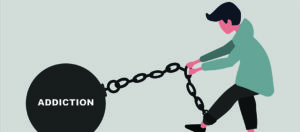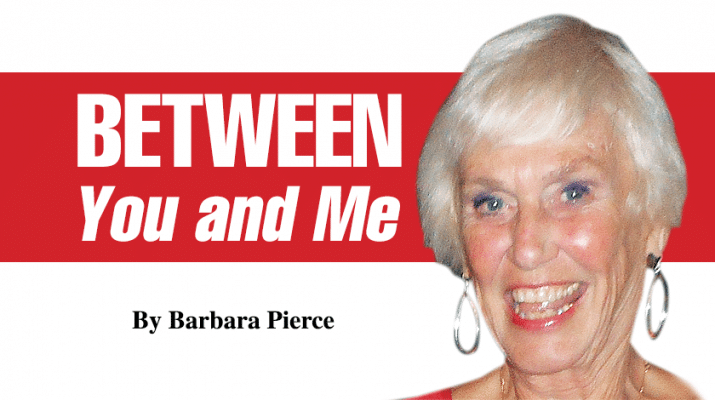Addiction to pornography is as bad as addiction to drugs, gambling or alcohol — and the numbers are growing
By Barbara Pierce
 “It’s pretty much a nightmare!” said Anna, her voice quivering, on the verge of tears. She’d come to see me in my practice as a counselor. This was our first meeting.
“It’s pretty much a nightmare!” said Anna, her voice quivering, on the verge of tears. She’d come to see me in my practice as a counselor. This was our first meeting.
To get started, I asked her, “What’s going on with you right now?”
As she described her life, I could see why she felt she was living in a nightmare. The attractive 67-year-old had remarried five years ago. Though she’d only known him a few months when she agreed to marry him, he seemed perfect. A wonderful man her age, charming, bright, even paid his own way.
Sexual intimacy with him was so-so, but that didn’t matter to Anna.
They married, moved to Florida, bought a beautiful home. She was happy. Her life was all she’d been dreaming of for several years, though he seemed to avoid intimacy with her, no matter how hard she tried to attract him.
Then, things began to change. He spent more and more time on his computer, paying almost no attention to her. He’d quickly turn off his computer when she came near. Then came the time he was so engrossed in what he was doing, he didn’t turn it off.
Anna was sickened by what she saw on the screen. She quickly turned away from the hard core pornography images.
At that moment, their relationship changed: she went from happy in her marriage to devastated by what she finally understood was going on with him.
He went from being OK in the marriage to despising her for learning his dark secret. He became more and more emotionally abusive, calling her names, constantly criticizing, demeaning, ridiculing, shaming or ignoring her.
Their time with a marriage and family therapist didn’t help. They divorced; she had no money to leave him so they both lived in their house. As he continued to be abusive and spent all his time on the computer, she got away from home as much as possible.
He was addicted to porn. It’s an addiction — the same as an addiction to drugs, gambling or alcohol. The brains of those involved in viewing erotic images are different from normal brains, but they are similar to brains seen in drug addicts.
Porn addiction is when you can’t stop looking at porn, even if you want to. And the obsession gets to the point that it interferes with work, relationships and other parts of daily life. It’s easy to understand how this could be a problem with the widespread availability of internet porn today, a few key strokes and you’re there.
Surveys show that more males than females view porn, yet, a relatively high percentage of viewers are female.
And the numbers are growing. “In the last three years, I’ve seen a huge uptick in the number of clients coming to see me because of porn,” Daniel Silverman, a licensed social worker in Rome, told me in a recent interview. “Porn has tremendous negative effects. I’ve seen many divorces because of it.”
If you want more details, you can find the negative consequences that happen when you’ve rewired your brain, as described by recovering addicts online. Like one man who said: “I was always hungry for more — more sites, more variety, more extreme content — but no matter how deep I delved, it never made me happy. I was so desensitized that real sex was awkward, unexciting, and disappointing.”
“Parents should be especially vigilant,” Silverman urged. “I’m a parent. We need to be vigilant in terms of what our kids do as this addiction starts in childhood and works its way up very quickly. Parents have to be careful.”
Definitions about how much porn is too much vary. But most experts agree that if it gets in the way of your day-to-day activities, you could be watching too much. For example, if porn becomes a central part of your life. You stop doing things you really enjoy so that you can see more of it.
There is no clear consensus on what causes porn addiction, partly because not all researchers agree that viewing pornographic material constitutes an addiction.
And not everyone becomes addicted; some people have a problem with compulsive use and others do not. Some factors that may explain this include differences in the chemistry of the brain; or, it becomes a coping mechanism to manage life stresses or other mental health issues; or the person has difficulties with intimate relationships.
As for Anna, she left her abusive, addicted ex-husband to live with a friend until she received her share of the money from the sale of the house. Now she’s on her own, happy with her new life, trying to leave thoughts of her difficult marriage behind.
 Barbara Pierce is a retired licensed clinical social worker with many years of experience helping people. If you would like to purchase a copy of her book, “When You Come to the Edge: Aging” or if you have questions for her, contact her at barbarapierce06@yahoo.com.
Barbara Pierce is a retired licensed clinical social worker with many years of experience helping people. If you would like to purchase a copy of her book, “When You Come to the Edge: Aging” or if you have questions for her, contact her at barbarapierce06@yahoo.com.

